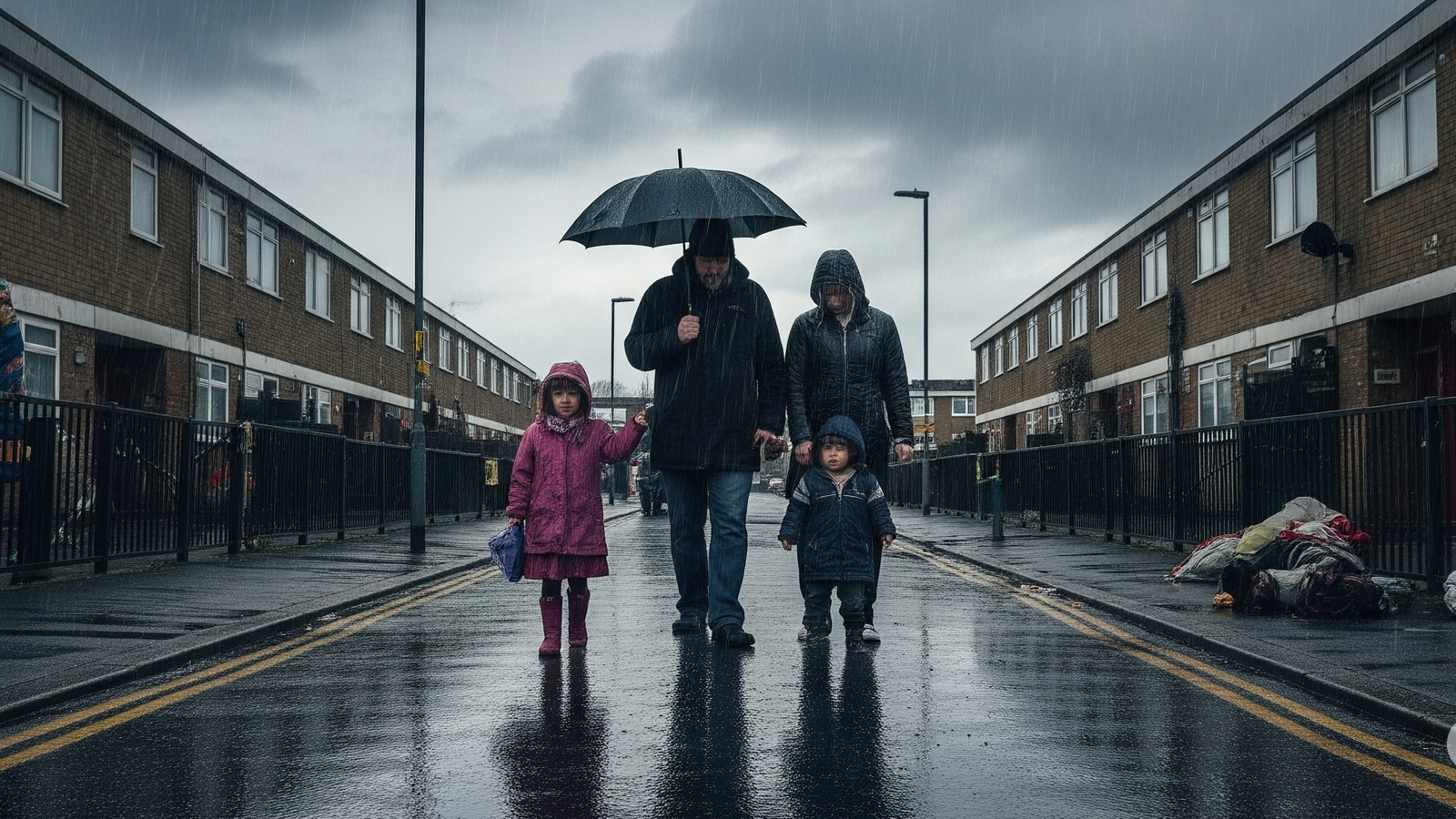Britain has long been characterized by its nuanced class system, but in recent decades, a confluence of economic, social, and political factors has exacerbated existing divides, creating a chasm that feels wider than ever. While official figures may offer a complex picture of inequality trends, the lived experiences of many Britons point to a deepening stratification that impacts everything from education and housing to health and opportunities.
One of the most significant drivers of this widening gap is **economic inequality**. Despite some fluctuations, the overall trend since the 1980s has been a growing disparity in both income and wealth. The richest fifth of households now holds a disproportionate share of the nation's income and wealth, while the poorest struggle to make ends meet. This is evident in:
Stagnant Real Wages and the Cost of Living Crisis: For many, real wages have remained stagnant or even fallen, meaning their purchasing power has decreased. Meanwhile, the cost of essential goods and services, particularly food, energy, and housing, has soared, disproportionately impacting lower-income households. This creates a constant struggle to meet basic needs, leaving little room for savings or investment in future opportunities.
Wealth Concentration: Wealth inequality is even more pronounced than income inequality. The concentration of wealth among the top echelons means that those who already possess assets benefit most from economic growth, while those with little or no assets fall further behind. This is often linked to inherited wealth and opportunities, perpetuating advantage across generations.
Impact of Austerity Measures: The austerity policies implemented in the wake of the 2008 financial crisis have been widely criticized for disproportionately affecting the poorest and most vulnerable. Cuts to social security, public services, and local government funding have reduced safety nets and opportunities for those on low incomes, while the wealthiest have borne a comparatively smaller burden.
The Housing Crisis plays a critical role in solidifying class divides. The severe shortage of affordable housing has driven up both property prices and rents, making homeownership an increasingly distant dream for many, especially younger generations and those on lower incomes.
Unaffordable Homeownership: House prices have significantly outpaced wage growth for decades, making it nearly impossible for many to save for a deposit, let alone afford a mortgage. This traps a growing number of people in the private rental sector.
Soaring Rental Costs: The increased demand for rental properties has led to spiraling rents, consuming a large portion of many households' disposable income. This financial strain leaves little left over for other necessities or for upward mobility.
Erosion of Social Housing: The "Right to Buy" scheme, introduced in the 1980s, led to a significant reduction in social housing stock, limiting affordable options for those most in need. The current pace of new social housing construction falls far short of demand, leaving millions on waiting lists or in temporary accommodation.
Regional Disparities: The housing crisis is not uniform across the UK, with regions like the South East experiencing much higher property values, further entrenching geographical class divides.
The Education System, often seen as a ladder of opportunity, also contributes to the widening class divide.
Early Years Attainment Gap: Children from disadvantaged backgrounds often start school years behind their more privileged peers in terms of attainment, and this gap often widens as they progress through the education system.
Disparities in School Resources: While policies like Pupil Premium aim to support disadvantaged pupils, inequalities persist in school resources, access to enrichment activities, and qualified teachers, often mirroring the socioeconomic composition of the school's catchment area.
Access to Higher Education and Graduate Outcomes: While more students from disadvantaged backgrounds are entering university, they are more likely to drop out and, even if they graduate, may earn less than their more privileged counterparts five years after graduating.
The Role of Private Education: The existence of a strong private education sector allows wealthier families to secure perceived advantages for their children, including better facilities, smaller class sizes, and stronger networks, further reinforcing existing class structures.
Beyond these core areas, other aspects of life in Britain exacerbate the class divide:
Health Inequalities: Poorer communities often experience worse health outcomes, including lower life expectancy and higher rates of chronic diseases, a disparity linked to factors like diet, living conditions, and access to healthcare.
Digital Divide: While increasingly essential for accessing services, employment, and education, access to reliable internet and digital devices remains unequal, disadvantaging those who cannot afford them.
Insecure Work and Automation: The rise of insecure work, including zero-hours contracts and the gig economy, disproportionately affects lower-skilled workers, offering less stability, fewer benefits, and lower pay. Automation also poses a greater threat to jobs typically held by working-class individuals.
Erosion of Social Mobility: Overall, social mobility in the UK has stagnated, meaning that individuals from less privileged backgrounds find it increasingly difficult to move up the social and economic ladder. Being born privileged still largely dictates remaining privileged.
In conclusion, life in Britain is, in many ways, making the class divide wider than ever. The interconnected challenges of economic inequality, a prohibitive housing market, and an education system struggling to bridge the gap mean that opportunities and life chances are increasingly determined by one's socioeconomic background. Addressing this requires a concerted effort to tackle these systemic issues and create a more equitable society where talent and hard work, not background, are the true determinants of success.








.svg)


.png)
